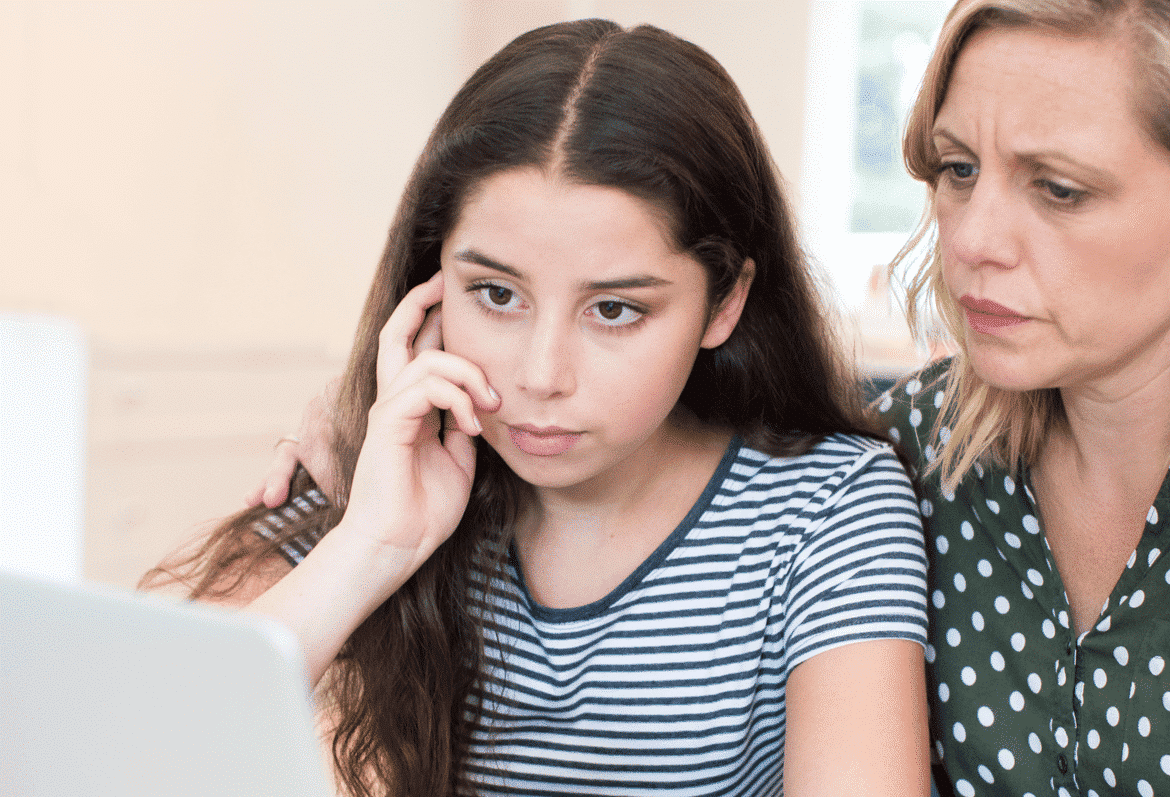
Cyberbullying: What You Need to Know
Now that most children are attending school from home, many of them are getting more screen time than ever. Between classes and virtual playdates, online interactions are the new normal. Unfortunately, the lack of in-person contact doesn’t help protect children from childhood bullying; in fact, more time online just creates more opportunities for cyberbullying. So what is cyberbullying, and what can you do about it? Here is what you need to know:
What is Cyberbullying?
Cyberbullying is bullying that takes place through digital devices where a person sends intimidating, negative, or hurtful messages or photos. It’s similar to in-person bullying only it’s done via the use of electronic devices, most often through email, text, or on social media — any place where people can chat and share content.
Why Cyberbullying can be Worse than In-Person Bullying
When a child is bullied in person, the bullying usually ends when they are removed from the situation, such as when they leave school or a party where bullying is taking place. However, cyberbullying can be relentless, as a bully may be able to contact their victim through a number of different channels, 24-hours a day.
Furthermore, bullying at school or during recreational activities happens between people who know each other, while online bullying can come from strangers who see your content online, and in a lot of cases, perpetrators may use a fake profile, photo, or email address to send their cruel messages anonymously.
Online bullying can also be easy for parents or teachers to miss. While people will most likely notice bullying happening in front of them, you can’t see cyberbullying unless you are monitoring all online activities and communications — an almost impossible task. You can, however, learn what signs to look for in your children.
What are the signs and effects of cyberbullying?
Bullying can have damaging psychological effects, causing fear, depression, anxiety, humiliation, shame, low self-esteem, feelings of powerlessness, withdrawal from things they used to enjoy, and many other negative symptoms. Mental distress may also lead to physical symptoms such as stomach pain or headaches. Be aware of these signs, plus any change in their behavior regarding using the internet; for example, if they used to enjoy being online but suddenly avoid it, cyberbullying could be a reason for the change.
What can you do?
Paying attention to changes in your child’s demeanor and moods is a good first step, and will help you be on the lookout for any of the symptoms listed above. Here are other steps you can take:
- Have open conversations about internet safety — this Guide to Online Safety from Maryville University has great information on things you should know and talk about with your kids.
- Teach your children about keeping information private online. Make sure they know to never give out information about where they live, just as they wouldn’t do with strangers in person.
- If you allow them to have social media accounts, set guidelines for what kind of content they are allowed to post. Follow them from your own account to periodically monitor the content and any messages, set their security settings for maximum privacy, and have their passwords in case you ever need to log in and take a deeper look into any private messages they may receive.
- Talk to your children about cyberbullying and let them know to talk to you, a teacher, or another adult you both trust if they ever feel hurt or uncomfortable about something that happens online.
- If your child should become cyberbullied, block the perpetrator from being able to contact your child on any platform and take screenshots and keep records of any incidents to have proof in case you need to talk to another parent or law enforcement.
While the internet and technology have many wonderful benefits, cyberbullying is one of the downsides. By educating yourself and your kids, you’ll be in a good position to recognize cyberbullying as soon as it starts, and possibly avoid it altogether.
For more articles about parenting, visit our resources at scrippsamg.com.

Join our Senior Wellness Society for the latest news on Medicare and tips for healthy living in San Diego!
Sign up now ›Are you looking for specialized medical care in San Diego?
Our directory has more than 850 doctors in San Diego County of various specialties who are available to help you.
Find a doctor